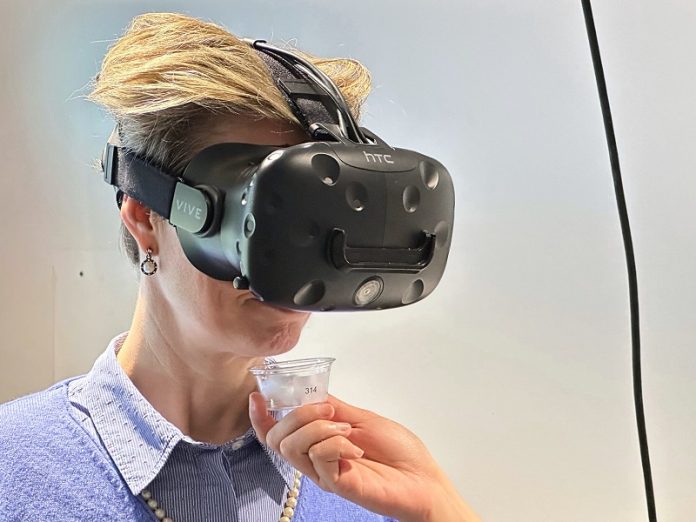
Researchers from RMIT University have conducted a groundbreaking study to understand why astronauts often find their meals tasteless in space and struggle to eat enough.
This research, published in the International Journal of Food Science and Technology, could also help improve the diets of people in isolated settings, such as nursing homes, by enhancing food aromas to make meals more enjoyable.
The study focused on how people perceive common food aromas, specifically vanilla and almond extracts, and lemon essential oil.
Participants experienced these aromas in a simulated International Space Station (ISS) environment using virtual reality (VR) goggles.
The research team found that the vanilla and almond scents were more intense in the ISS simulation, while the lemon scent remained unchanged.
Dr. Julia Low, the lead researcher from the School of Science, explained that the increased intensity of vanilla and almond aromas in the simulated space environment could be linked to a sweet chemical called benzaldehyde found in these scents.
Additionally, a person’s sensitivity to specific smells may influence their perception of food aromas in space.
“A greater sense of loneliness and isolation might also affect how people smell and taste food,” Dr. Low said. “Our study has implications for understanding how isolated individuals, like astronauts or nursing home residents, experience food.”
This study is significant because it involved a large sample size of 54 adults and captured individual variations in aroma and taste experiences in isolated settings.
Dr. Low emphasized that one of the long-term goals is to create better-tailored foods for astronauts and others in isolated environments, aiming to improve their nutritional intake.
The research also shed light on the role of spatial perception in how people smell aromas. This complements previous studies on astronauts’ eating experiences in space, including the “fluid shift” phenomenon.
In weightlessness, fluids move from the lower to the upper parts of the body, causing facial swelling and nasal congestion that affects the sense of smell and taste. Although these symptoms usually subside after a few weeks, astronauts still report not enjoying their food, suggesting other factors are at play.
Associate Professor Gail Iles, a former astronaut instructor and co-researcher from RMIT, highlighted the importance of this study for future space missions. “With longer missions, especially to Mars, we need to understand diet and food interactions to ensure astronauts meet their nutritional needs,” she said.
The VR simulation in the study provided a realistic experience of being on the space station, significantly altering how participants smelled and tasted food. Associate Professor Jayani Chandrapala, a food chemistry expert from RMIT, noted that benzaldehyde, a sweet aroma compound found in vanilla and almond, played a crucial role in changing people’s perceptions of these aromas in the space simulation.
Dr. Low believes the study’s findings could benefit people living in socially isolated environments on Earth. “Our results could help personalize diets for isolated individuals, such as those in nursing homes, improving their nutritional intake,” she said.
The study’s first author, Ph.D. scholar Grace Loke from RMIT, collaborated with International Flavors and Fragrances from the Netherlands.
This research opens new possibilities for enhancing food experiences in space and on Earth, making meals more enjoyable for everyone, especially those in isolated settings.
If you care about nutrition, please read studies about berry that can prevent cancer, diabetes, and obesity, and the harm of vitamin D deficiency you need to know.
For more information about nutrition, please see recent studies about the connection between potatoes and high blood pressure, and results showing why turmeric is a health game-changer.



